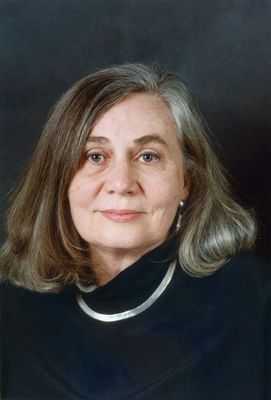 Why did you feel it was important to join the “God debate” now?
Why did you feel it was important to join the “God debate” now?
When I was invited to give the Terry Lectures at Yale, which are meant to deal with issues of science and religion, I took the opportunity to express the dissatisfaction I feel with the entire debate, as it has developed over the last decade or two. It should now be described as a quarrel, the adversaries being atheism and religion. There have been distinguished and important voices on both sides. But the quality of the controversy has been allowed to degenerate to the level of parody. At best, the disputants are still doing something quintessentially human – pondering the nature of being, of the cosmos, of human circumstance. More typically they are dealing in spleen and hokum. Rather than elevating the conversation they are muddling and debasing it. As a university professor I see the consequences of all this in the thinking and writing of my students. Their generation has been short-changed in many ways, and this loss of the integrity of the culture of ideas is one more deprivation.
You are critical of the New Atheists – what is wrong with their arguments?
I object to their claim to the authority of science, when the kind of “science” and argument they employ has hardly advanced since Herbert Spencer – who was a much better writer than any of them, by the way. One need only compare any actual contemporary scientific periodical with any one of these books to see how full they are of the must of the century before last. The extrapolation from untestable assertion to global pronouncement which is so characteristic a feature of this school is as far from scientific as anything could be. The reasoning in general is often deeply flawed. And insofar as they refer to history – or to religion, for that matter – they are usually misinformed or lacking information altogether.
But are you prepared to acknowledge the harm organised religion has done?
Any great human enterprise has heights and (in the invidious sense) depths. Science has Einstein, and it has the individual who won the Nobel Prize in 1949 for the work he had done to promote the lobotomising of mental patients. Religion is indeed associated with war and atrocity, and so is science. And government and nation and ethnicity and economics. In all probability, none of these is ever uniquely to blame, or entirely without guilt. The list of what science has contributed to making the threat of war always more terrible would be long indeed, and the destabilising effects great indeed. It is a classic instance of the reductionism that is so characteristic of this debate, to speak as if this ancient crime and affliction of humankind had only one cause. True, the institutions of religion have endorsed the whole range of crimes and have provoked atrocities in the name of faith. Both religion in the best sense and science in the best sense are often betrayed and exploited on account of their power, or are corrupted by it. The question at the centre of each of them – how is reality to be understood? – is untouched by the abuses to which they are subject. And this is where the focus of conversation should be. Good faith, like good science, is active wonder. Reverence for life.
You use the word “soul” in your book. What do you mean by this?
There is a very primary self, a companion self one answers to, intimate and aloof, keeper of loyalties, bearer of loneliness and sorrow, faithful despite neglect and offence, more passionate lover of everything one loves, the unaccountable presence of joy in quiet and solitude. Soul is one name for this self within the self, which I believe is a universal human possession.
Marilynne Robinson teaches at the Iowa Writers Workshop. She will join Jonathan Rée, Roger Scruton and Laurie Taylor to discuss the future of the God debate at the RSA in London on 21 September 2010.

